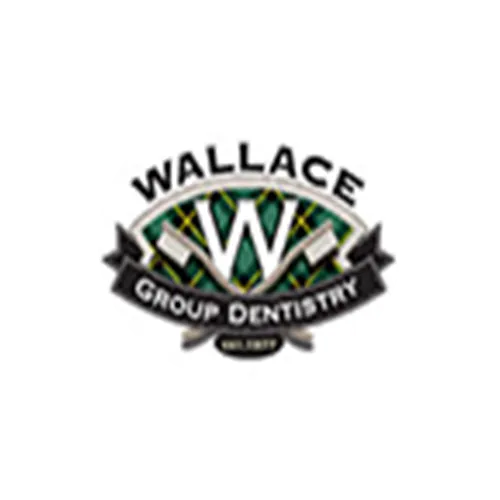-
Air Abrasion
Category: Technology
Air abrasion is a drill-less technique that involves an instrument used to blast away small areas of early onset tooth decay, as well as help dentists perform other dental procedures. It is recommended for children or other patients who are fearful of traditional drilling. Air abrasion can only be used
Read more -
Digital Dental Impressions
Category: Technology
Dental impressions are bad enough to make anyone avoid the dentist. If you’ve ever needed a crown, bridge, or retainer, then you’ve experienced the discomfort that comes while waiting for the gooey, putty-like material (alginate) to set for a dental impression. Thankfully, there are new ways to obtain
Read more -
Periodontal Flap Surgery
Category: Periodontal Therapy
Periodontal flap surgery, also known as gum flap surgery, reduces periodontal pockets, which develop below the surface of your gum line in the advanced stages of gum disease. These pockets fill with bacteria, tartar, and plaque, and attack your gum and bone tissue. Periodontal pockets cannot be reached
Read more -
Periodontal Therapy Procedures
Category: Periodontal Therapy
Gum disease, also known as periodontal disease or periodontitis, is a bacterial infection that inflames the soft tissue around your teeth and becomes more severe if left untreated. Over time, gum disease will erode the bone that supports your teeth, leading to tooth mobility and loss. Depending on the
Read more -
Ultrasonic Cleanings
Category: Periodontal Therapy
Ultrasonic cleaning, also known as ultrasonic scaling, is an alternative to traditional manual methods of removing plaque from your teeth. An ultrasonic cleaning device operates by sending low ultrasonic vibrations in the unit’s hand-held wand, causing the tip to vibrate faster than the speed of sound.
Read more -
Oral Systemic Connection
Category: Periodontal Therapy
Your mouth is essentially the gateway to your body. Poor or good oral health has a direct impact on your systemic health, and if your systemic health is afflicted by disease, this in turn has an impact on your oral health. It’s vital to evaluate where your oral and systemic health stand, so that you
Read more -
Periodontal Disease
Category: Periodontal Therapy
Periodontal (gum) disease, also known as periodontitis, is a bacterial infection that inflames the soft tissue around your teeth and becomes more severe if left untreated. Over time, gum disease will erode the bone that supports your teeth, leading to mobility and tooth loss. Gum disease is quite common,
Read more -
Loose Teeth and Bite Problems
Category: Periodontal Therapy
While a loose baby tooth is perfectly normal, a loose adult tooth is something to be concerned about. Painful and unpleasant, a loose permanent tooth may fall out, need extracting, or cause serious bite problems. This can all be avoided, but it is imperative that you seek professional dental care as
Read more -
Non-Surgical Periodontal Procedures
Category: Periodontal Therapy
Periodontal disease is an infection of your gum tissue, usually caused by poor oral hygiene habits. If brushing and flossing is not done at least twice a day, and you’re not visiting your dentist for checkups and professional cleanings twice a year, plaque will build up on the teeth and eventually
Read more -
Cosmetic Gum Surgery
Category: Periodontal Therapy
Cosmetic gum surgery, or gum contouring, can solve a variety of cosmetic issues relating to the proportions of your teeth and your gums. For example, too much gum tissue may make your teeth appear short, while too little gum tissue will make your teeth appear too long. You may also have a combination
Read more -
Gum Grafting
Category: Periodontal Therapy
If your dentist has detected that your gums have receded substantially, you may be referred to a periodontist for a gum graft. Gum recession occurs when the tissue surrounding each tooth pulls away, exposing more of the tooth or the tooth root. This exposure can cause significant damage to the supporting
Read more -
Fluoride and Your Child
Category: Pediatric Dentistry
Fluoride is a naturally occurring mineral essential for proper tooth development. Benefits of fluoride: Strengthens tooth enamel, by capturing minerals in saliva and forcing them into the tooth’s makeup Inhibits bacterial metabolism, slowing down the growth of bacteria and their reducing their acidic
Read more -
About Pediatric Dentistry
Category: Pediatric Dentistry
Pediatric dentistry is the study, practice, teaching, and research of oral care treatments and preventions in children. It is recommended that children visit their pediatric dentist twice a year. Parents should schedule the first visit within six months of their child’s first baby tooth coming in,
Read more -
Your Child's First Teeth
Category: Pediatric Dentistry
Your child’s first tooth is a big developmental milestone, so it’s important for you to know what to expect and how to maintain your child’s teeth when they start coming in. It’s just as vital to take care of baby teeth as it is permanent teeth, even though the baby teeth eventually fall out.
Read more -
Space Maintainers
Category: Pediatric Dentistry
One of the many functions of baby teeth is to hold space for the adult teeth that will eventually push them through. When baby teeth are lost prematurely, the permanent teeth that are coming in on either side can actually drift into the space that was reserved for another tooth. This can cause teeth
Read more -
Thumb Sucking
Category: Pediatric Dentistry
Thumb sucking is a common habit that babies develop before they’re born. While most children naturally stop thumb sucking between the ages of two and four, some children might struggle to break the habit. If your child is still thumb sucking around the age of four, it’s important to help them stop. Thumb
Read more
Our Location
Find us on the map
Hours of Operation
Our Regular Schedule
Monday:
8:00 am-6:00 pm
Tuesday:
8:00 am-6:00 pm
Wednesday:
8:00 am-6:00 pm
Thursday:
10:00 am-6:00 pm
Friday:
9:00 am-2:00 pm
Saturday:
Closed
Sunday:
Closed
